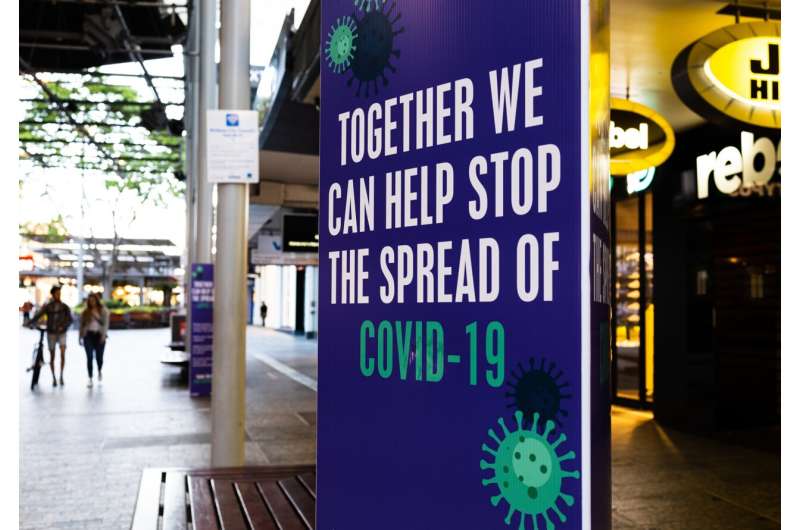Credit: Unsplash/CC0 Public Domain
Belief in anti-vaccination conspiracy theories can be reduced by correcting misperceptions of what others in society believe, according to psychologists who have examined the impact of a new social intervention approach.
In a paper recently published in Group Processes and Intergroup Relations, a three-part study questioned a range of people on their belief in conspiracy theories and their perception of what others thought. Findings showed that people over-estimate the belief of others in conspiracy theories, and that these misperceptions are strongly related to their own personal belief.
The research was led by Darel Cookson, from Nottingham Trent University's School of Social Sciences, with Dr. Daniel Jolley, Northumbria University, Dr. Robert C. Dempsey, Manchester Metropolitan University, and Dr. Rachel Povey, Staffordshire University.
In a second paper recently published in PLOS ONE, the research focused specifically on parents and anti-vaccination beliefs.
In this study, more than 200 UK parents completed a questionnaire which assessed their willingness to vaccinate their children, whether they thought other parents believed anti-vaccination conspiracies, and how likely they thought others were to vaccinate their children.
Researchers then used an intervention technique which corrected their misperceptions by showing a selection of participants the actual level of conspiracy belief among other parents with the message that the overwhelming majority of UK parents choose to vaccinate their children.
These participants were then asked again about their anti-vaccine conspiracy beliefs and vaccination intentions immediately after the feedback and were also invited back to take the measures after six weeks.
The intervention was shown firstly to reduce how much participants thought other parents endorsed anti-vaccine conspiracy theories which, in turn, reduced their own personal conspiracy beliefs. The intervention also increased how much participants thought other parents intended to vaccinate which, in turn, increased their personal intentions to vaccinate.
Darel, a Ph.D. researcher who carried out part of the study while at Staffordshire University, said: "Our method—which used the Social Norms Approach—begins with the premise that we are influenced by our perceptions of other peoples' beliefs and behaviors, but that we often hold misperceptions of these views.
"This is the first time this approach has been tested to address anti-vaccine conspiracy beliefs, and we have shown that giving people feedback on how they've misjudged the beliefs and behaviors of others has the potential to tackle anti-vaccine conspiracy endorsement, which can have detrimental effects of the uptake of important vaccines.
"It's very promising that the immediate follow-up showed a significant reduction in participants' anti-vaccine conspiracy beliefs. Although this change didn't remain after six weeks, further development of the method with 'top-up' messaging at future intervals will mean we can measure the long-term effectiveness of the intervention."
The studies have been published across two papers:" "If they believe, then so shall I': Perceived beliefs of the in-group predict conspiracy theory belief" has been published in the journal Group Processes & Intergroup Relations and "A Social Norms Approach intervention to address misperceptions of anti-vaccine conspiracy beliefs amongst UK parents" has been published in PLOS ONE.
More information: Darel Cookson et al, "If they believe, then so shall I": Perceived beliefs of the in-group predict conspiracy theory belief, Group Processes & Intergroup Relations (2021). DOI: 10.1177/1368430221993907
Darel Cookson et al, A social norms approach intervention to address misperceptions of anti-vaccine conspiracy beliefs amongst UK parents, PLOS ONE (2021). DOI: 10.1371/journal.pone.0258985
Journal information: PLoS ONE
Provided by Nottingham Trent University
























